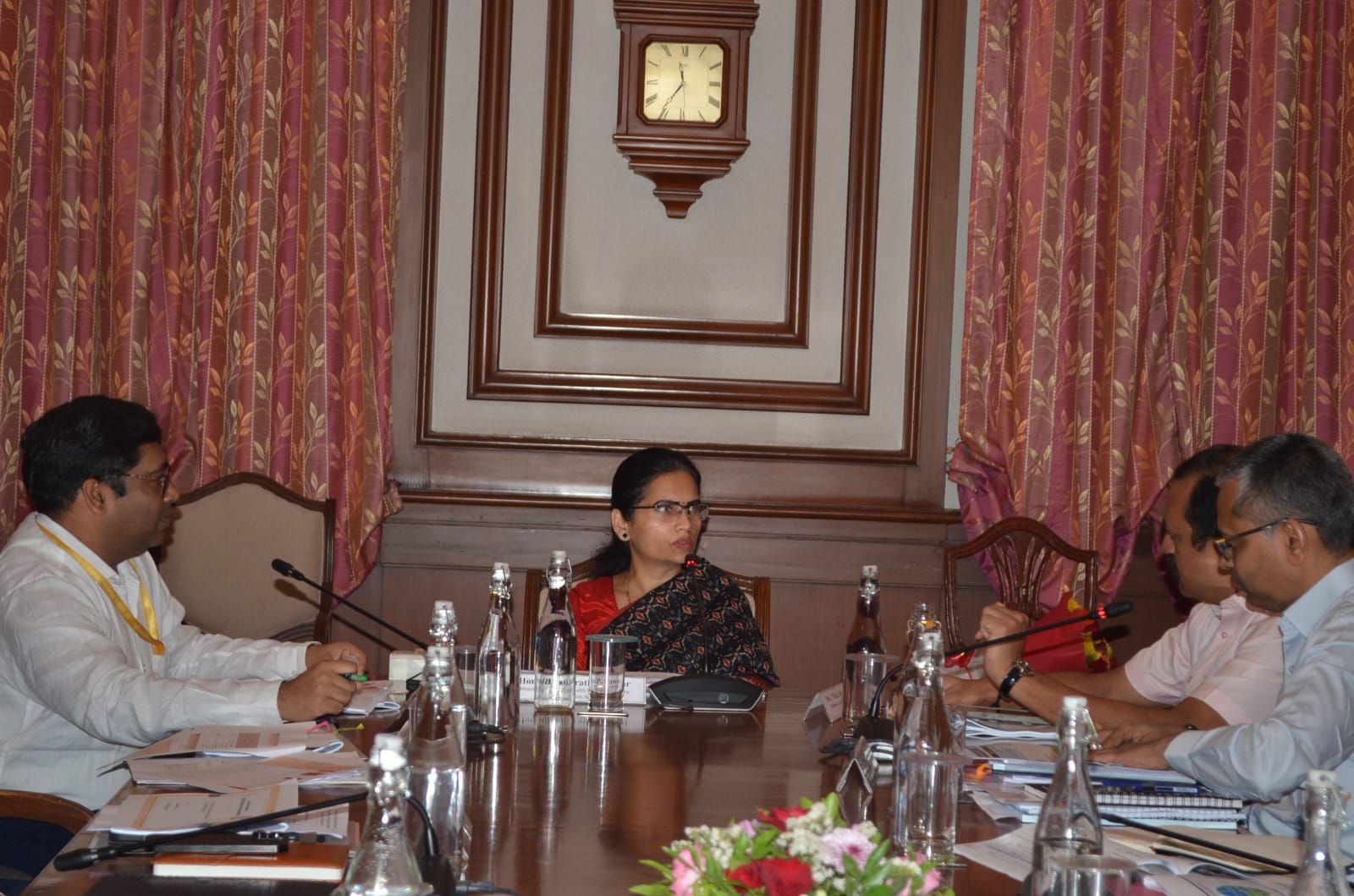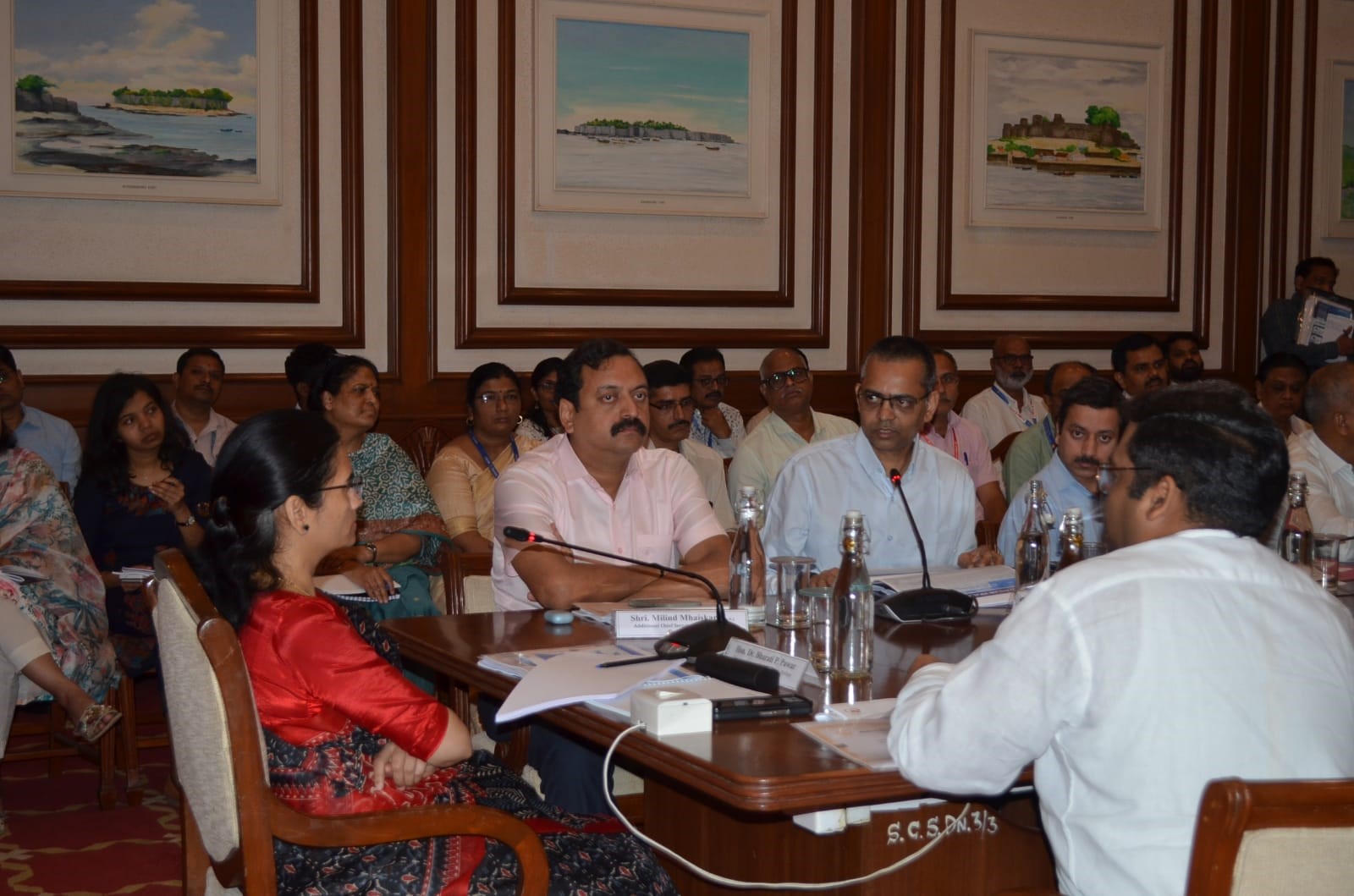
Mumbai, 22 February 2024
Union Minister of State for Health and Family Welfare and Tribal Affairs Dr. Bharati Pravin Pawar chaired a review meeting on implementation and progress of health sector schemes in Maharashtra. The meeting, held at Sahyadri Guest House in Mumbai today, was attended by the Additional Chief Secretary, Health Department, Government of Maharashtra, Shri Milind Mhaiskar; Director, NHM-III, Union Ministry of Health and Family Welfare (MoHFW) Shri Saroj Kumar, Commissioner of Health Services and MD, NHM, GoM, Shri Dheeraj Kumar; Commissioner of Medical Education Department Shri Rajeev Niwatkar, Additional Director Of Health Services Dr. Nitin Ambedkar and other senior officers of the Centre and state’s health department. The implementation and progress of PM-ABHIM; Sickle Cell Anaemia Elimination Mission; National Quality Assurance Standards (NQAS) Certification for District Hospitals, CHCs, PHCs and Urban PHCs; Ayushman Arogya Mandir; PMSSY; PMJAY; TB Elimination Programme; PMNDP; Cancer Care and AYUSH hospitals in the state were amongst the schemes and programmes reviewed and discussed.
Speaking on the occasion, MoS (HFW) Dr. Bharati Pawar said, funds are given to the states through various schemes by the central government to build health infrastructure in the country and make patient care effective. Through the allocation of these funds, work is being done to empower the health system in the country.

MoS (HFW) directed the state health department that mass screening in tribal areas for sickle cell anaemia should be increased. Dr. Bharati Pawar urged that Sickle-cell Anaemia screening should be made mandatory in pregnant women’s health check-up. Prime Minister Narendra Modi has set the goal of eradicating sickle cell disease in the country, reminded the Minister. Along with this, measures should be implemented for elimination of tuberculosis and as many citizens as possible should be included in the campaign for screening of TB by creating public awareness to become Nikshaya Mitra, urged the Minister.
Dr. Bharati Pawar also said that medical laboratories are being constructed in the state under the Prime Minister Ayushman Bharat Health Infrastructure Mission (PM- ABHIM) scheme. This facility has been created in four districts of the state. Further, 18 critical care blocks are being constructed under PM-ABHIM in the state of Maharashtra. There are 11 thousand 52 health centres in Maharashtra which have now been converted into Ayushman Arogya Mandir. These centres will have new facilities like diabetes screening, three types of cancer screening etc.
Along with the strengthening of health facilities, medical education seats have also been increased in the country, stated MoS (HFW). The work of medical colleges is going on at Nandurbar and Gondia in the state. Public Private Partnership (PPP) method should be used in the health sector as it is found to be effective , stated Dr. Pawar and also advised that more chemotherapy centres should be opened for increased cancer diagnosis and treatment. Minister also said that an effective control program should be implemented for cancer in the state.

It was informed in the review meeting that 69 lakh patients in the state have availed the teleconsultation facility e-Sanjeevani and sought for medical advice. The target of Pradhan Mantri Jan Arogya Yojana (PM-JAY) in the state is 3 crore 26 lakh beneficiaries. So far 24 lakh patients have benefited from this scheme in Maharashtra. The minister gave instructions to complete the distribution of cards under this scheme soon.
MoS (HFW) also directed that 15th Finance Commission fund, Covid Response Fund etc. should be utilized to empower the health system in the state.
It was also noted in the review meeting that Kilkari project has been implemented in Gujarat and Maharashtra states. ‘Kilkari’ (meaning ‘a baby’s gurgle’), is a centralized interactive voice response (IVR) based mobile health service which delivers free, weekly, time-appropriate 72 audio messages about pregnancy, childbirth, and childcare directly to families’ mobile phones from the second trimester of pregnancy until the child is one year old.
* * *
PIB Mumbai | SC/ D.Rane
Follow us on social media:![]() @PIBMumbai
@PIBMumbai  /PIBMumbai
/PIBMumbai ![]() /pibmumbai
/pibmumbai  pibmumbai[at]gmail[dot]com
pibmumbai[at]gmail[dot]com  /PIBMumbai
/PIBMumbai  /pibmumbai
/pibmumbai



